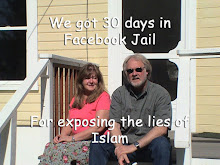Why Benjamin Franklin rejected his Presbyterian roots
There are many reasons a politician might reject being affiliated with a particular religious denomination. In his early teens Franklin had exhausted the books in his fathers library which for the most part were related to bible study and religion. He left home at seventeen looking for work in the printing business and ended up in England for over a year. Returning to America in 1726 he was about twenty years old. As he began to prosper in the printing business he was consumed by reading. Though he seldom attended church he never abandoned his belief in God. His view of the Presbyterian religion however he came to reject."I had been religiously educated as a Presbyterian; but though some of the dogmas of the persuasion, such as the eternal decrees of God, election, reprobation, etc., appeared to me unintelligible, others doubtful, and I early absented myself from the public assemblies of the sect, Sunday being my studying day, I never was without some religious principles. I never doubted, for instance, the existence of a Deity- that he made the world and governed it by his providence - that the most acceptable service of God was the doing good to man - that our souls are immortal - that all crimes will be punished, and virtue rewarded, either here or hereafter."
In Philadelphia, a Presbyterian minister encouraged him to attend his church but it was short lived. "Had he been in my opinion a good preacher, perhaps I might have continued...but his discourse were chiefly either polemic arguments, or explications of the peculiar doctrines of our sect, and were all to me very dry, uninteresting, and unedifying; since not a single moral principle was inculcated or enforced; their aim seeming to be rather to make us Presbyterians than good citizens."
After five Sundays of this experience he gave up on public assemblies and pursued his own studies on Sundays with the help of a liturgy and form of prayer of his own that he composed (1728) entitled, Articles of Belief and Acts of Religion. He admitted that his conduct might have been blameable but he made no apologies. Of his thirteen virtuous goals the final was to imitate Jesus and Socrates.
Reverend Whitefield came to preach from Ireland in 1739 Franklin became one of his great admirers and supporter. Whitefield was not shy about calling out the errors of clergymen who shut him out of their churches.
When it came time for the Americans to pick up weapons to defend themselves against their enemies Franklin was more than a bit frustrated by the hypocrisy of the pacifist Quakers.






